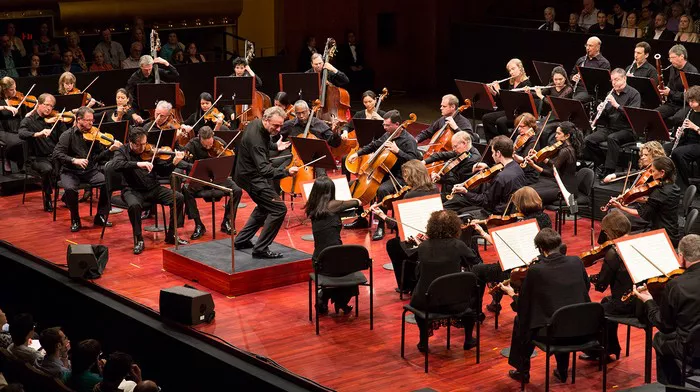Classical music has an unparalleled ability to transcend time and space, captivating audiences with its beauty, complexity, and emotional depth. From the Baroque era to the contemporary period, classical composers have gifted the world with an extraordinary repertoire of compositions that continue to inspire and enthrall listeners across generations. In the realm of classical albums, there are certain recordings that stand out as timeless masterpieces, cherished for their exceptional performances, impeccable interpretations, and enduring significance. In this article, we embark on a journey through the annals of classical music history to explore some of the best classical albums of all time.
1. Johann Sebastian Bach – “The Brandenburg Concertos” (Performed by the English Baroque Soloists conducted by John Eliot Gardiner)
Johann Sebastian Bach’s “The Brandenburg Concertos” is undoubtedly one of the most iconic collections of orchestral music ever composed. Written in 1721 as a gift to the Margrave of Brandenburg, these six concertos showcase Bach’s unparalleled skill in weaving intricate contrapuntal textures with unparalleled mastery. The recording by the English Baroque Soloists, under the direction of the esteemed conductor John Eliot Gardiner, breathes new life into these timeless works, capturing the spirit of the Baroque era with authenticity and vitality. From the jubilant exuberance of the opening Allegro of Concerto No. 1 to the sublime beauty of the Adagio of Concerto No. 2, Gardiner and his ensemble deliver performances that are as electrifying as they are elegant, making this recording a cornerstone of any classical music collection.
2. Ludwig van Beethoven – “Symphony No. 9 in D minor, Op. 125” (Performed by the Berlin Philharmonic conducted by Herbert von Karajan)
Beethoven’s Symphony No. 9 stands as a towering achievement in the history of Western music, symbolizing the triumph of the human spirit over adversity. Composed in the twilight years of Beethoven’s life, this monumental work revolutionized the symphonic form with its inclusion of vocal soloists and choir in the final movement, culminating in the iconic “Ode to Joy.” The recording by the Berlin Philharmonic, under the baton of the legendary conductor Herbert von Karajan, is widely regarded as one of the definitive interpretations of this symphony. With its stirring orchestral performances, ethereal choral singing, and impassioned soloists, Karajan’s rendition captures the full magnitude of Beethoven’s vision, leaving an indelible imprint on the listener’s soul.
3. Wolfgang Amadeus Mozart – “Le Nozze di Figaro” (Performed by the Vienna Philharmonic conducted by Herbert von Karajan)
Mozart’s operatic masterpiece “Le Nozze di Figaro” (The Marriage of Figaro) epitomizes the height of Classical-era elegance and wit. Premiered in 1786, this comedic opera tells the story of love, jealousy, and intrigue among the aristocracy of 18th-century Spain. The recording by the Vienna Philharmonic, under the direction of Herbert von Karajan, is celebrated for its stellar cast, exquisite orchestral playing, and insightful interpretation. From the sparkling overture to the exuberant finale, Karajan captures the essence of Mozart’s music with consummate skill, drawing out the nuances of character and emotion in every phrase. With its seamless blend of drama, humor, and musical brilliance, this recording remains a perennial favorite among opera aficionados worldwide.
4. Pyotr Ilyich Tchaikovsky – “Swan Lake” (Performed by the Kirov Orchestra conducted by Valery Gergiev)
Tchaikovsky’s ballet “Swan Lake” is a timeless masterpiece of Russian Romanticism, renowned for its hauntingly beautiful melodies, lush orchestration, and captivating storytelling. Premiered in 1877, this enchanting tale of love, betrayal, and redemption has captivated audiences for over a century with its evocative score and mesmerizing choreography. The recording by the Kirov Orchestra, led by the dynamic conductor Valery Gergiev, offers a fresh interpretation of this beloved ballet, showcasing the orchestra’s technical precision and emotional depth. From the ethereal grace of the “Swan Theme” to the dramatic intensity of the “Black Swan Pas de Deux,” Gergiev and his musicians breathe new life into Tchaikovsky’s music, transporting listeners to a world of enchantment and wonder.
5. Gustav Mahler – “Symphony No. 2 in C minor, Resurrection” (Performed by the Chicago Symphony Orchestra conducted by Georg Solti)
Mahler’s Symphony No. 2, commonly known as the “Resurrection Symphony,” is a monumental work that grapples with the profound questions of life, death, and transcendence. Composed between 1888 and 1894, this symphony unfolds as a vast musical panorama, spanning moments of profound introspection and ecstatic jubilation. The recording by the Chicago Symphony Orchestra, under the baton of Georg Solti, is hailed as one of the definitive interpretations of Mahler’s masterpiece. With its expansive orchestral forces, radiant vocal soloists, and electrifying chorus, Solti’s rendition captures the epic sweep and spiritual depth of the music with breathtaking intensity. From the hushed reverence of the opening movement to the triumphant exultation of the finale, this recording offers a transformative listening experience that lingers in the mind long after the final notes have faded away.
Conclusion
In conclusion, the best classical albums of all time are not merely recordings; they are timeless works of art that continue to inspire, uplift, and enrich the lives of listeners around the world. Whether it’s the sublime beauty of Bach’s Brandenburg Concertos, the transcendent power of Beethoven’s Symphony No. 9, or the enchanting melodies of Tchaikovsky’s Swan Lake, these albums represent the pinnacle of human creativity and expression. As we embark on this journey through the annals of classical music history, let us celebrate the enduring legacy of these masterpieces and reaffirm their place in the pantheon of musical greatness.

